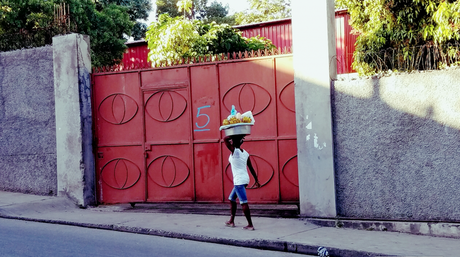
Merchants selling fruit. The day begins early on the streets of Port au Prince
“Excuse me, you’re going where??!” she gasps while simultaneously taking an irritated stride back, crossing her arms and dishing out that look that husbands the world over dread. “Um. Haiti,” I whimper back. And how can I blame her surprise? Just think of the things that come to mind when you hear the name Haiti: crime, armed violence, political instability, UN soldiers, endemic corruption, hurricanes, earthquakes, Zika virus, poverty, famine, cholera outbreaks and on and on…. But is news-driven negativity all there is to Haiti? Surely there must be more. After all, the French didn’t call it La Perle des Antilles (“the Pearl of the Antilles”) for no reason. So, I sooth my dear wife’s misgivings, grab my gear and hop on the plane, not entirely sure what I will find when I got there.
A brief history of Haitian independence
One cannot begin to appreciate Haiti without some rudimentary knowledge of its unique liberation story. It was once one of France’s most prized colonial possessions. In the 1790s, it became the only country in the history of the world to have successfully staged a slave rebellion leading to a fully independent nation (though it paid for it with the blood of hundreds of thousands of martyrs.) In the decade-long struggle, Haitian independence fighters fought off successive invasions by the most powerful armies in the world, including the French and Spanish. Even the British joined in to try to suppress the rebellion, lest any of their own Caribbean slave colonies dream up any foolish notions of liberty. After being outfought, outsmarted and outwaited, the demoralized British army eventually withdrew, but not before more than 100,000 of its soldiers succumbed to battle or disease here. Eventually, the exasperated European powers accepted the inevitable reality that Haiti would not come back into the fold of French colonial domination. In exchange for recognizing Haiti’s independence, France demanded a fee ransom equivalent to US$21B in today’s money, to “justly compensate” plantation slave lords for their lost “property.” Unfortunately, formal independence did not end Haiti’s troubles – soon after, a decades-long and bloody civil war erupted between the Haitian mulato and black populations. It was not until the mid-1820s that Haiti was finally able to move forward as an independent and peaceful nation.
The Haitian revolution had enormous global consequences. It signified that the American revolution was not an anomaly, that it could be repeated elsewhere, that Europe’s great armies could be defeated repeatedly. It served as a tremendous source of inspiration for Simon Bolivar and the other Latin American liberators of the 19th century. The revolution also sent a clear message to all slave societies of the Americas. In United States, it had a profound effect on the paranoia of the Southern slave states, which, as a direct consequence, resorted to a policy of extreme repression and militancy to try to avoid a Haiti-style revolution.
Rhythm of Port au Prince
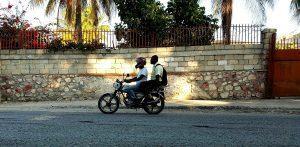
The ubiquitous motorcycle taxi
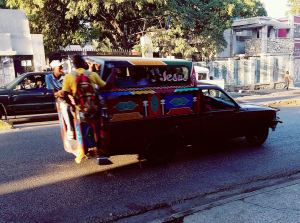
Colorful tap taps ferry passengers through town
Everywhere I go, locals stare at me. My entire essence screams that I am an outsider. They don’t often see foreigners walking around on the streets here, and certainly not in the residential area where I stay. Other than a few curse words, I speak no French and certainly no creole. But due to the proximity to the Spanish-speaking Dominican Republic, some locals do also speak Spanish. That comes as a bit of relief. On occasion, at least I can use my gringo-level Spanish skills to make myself halfway understood. US Dollars, known locally as “Obama money,” are widely accepted and often times favored over the local currency, Haitian Gourdes. Obama money. LOL. Is it going to change to Trump money soon, I inquire? No, they respond, US Dollars will always be Obama money. This is Port au Prince, I think to myself with a snicker.
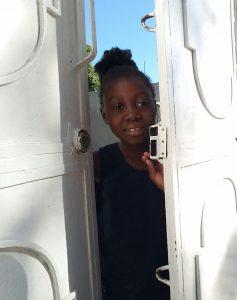
Curious about the foreigner browsing through the streets
Perhaps somewhat unexpectedly though, the hills surrounding the city are more brown and dry than green and lush. Not much rain here, I guess? I also find myself a bit surprised at the general level of disrepair of the city, it’s much more dilapidated than I even expected. I think back to my travels with my brother throughout the bowels of Africa. In Haiti, one gets an overwhelming sense of a developing nation trying to find its way in a world that doesn’t much care, not unlike some of the poorer cities of Botswana or Mozambique. Should I feel pity or accept that this is simply the reality? Decades of travel still have not answered this question for me.
On the road with the Haitian police
Unbeknownst to me, my host Jerome (not his real name) is an officer with the Port au Prince police department. What good fortune, he is the perfect person to share some local insights with me. As well as give me a driving tour of the city. Twice a week, he and a contingent of heavily armed officers accompany an emergency food convoy to the “southern claw,” Haiti’s southern peninsula that was devastated not long ago by Hurricane Matthew. Much of the population is displaced and the region is at serious risk of famine. People are desperate. Jerome tells me that without the police escort, the food convoy is at real risk of attack by the distraught population.
-
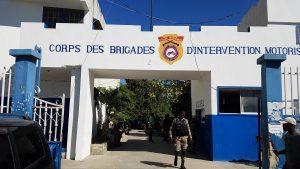
- The police station houses heavily armed police, dressed like soldiers going to battle
-
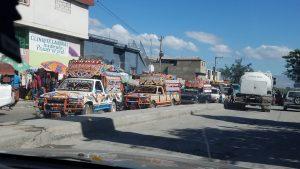
- Traffic jams are a reality of Port au Prince. Even short distances can take much longer than expected.
Jerome himself is also at constant risk of attack. Being a police man here is dangerous work, criminals deliberately target them. “The bad people come on motorcycles. They try to kill police. But it is our job, we have to protect the public,” he says nonchalantly. “I tell my mother I work for the police department. I don’t tell her that I am a police man.” Visiting the police station is like walking into a military camp. Heavily armed officers wearing full tactical gear stream in and out, some with shotguns, others with machine guns. Even though I don’t belong there, I am kindly received. One offers me a drink that is said to help with digestion, a foul-tasting, brown concoction pronounced Mah-bee. After watching the sick contortions on my face, the officer laughs, “Don’t drink too much. Your skin will turn black like mine.” I tell him, “It’s always better to be the source of humor for the police than the source of anger.” On that, we both agree!
A troubled city
A few days on and I’ve satisfied my curiosity. Port au Prince is rough. The handful of foreigners here are either Americans working for NGOs or UN soldiers – a contingent of Chileans here, Philipinos over there. The city is troubled. The 2010 earthquake and cholera outbreak that devastated the country only added to an already difficult situation. Violent crime is rampant, gun shots ring throughout the night. Zika has only made things worse. But nothing sets a society back as much as endemic corruption and constant political turmoil. The recent elections are fiercely contested, with both sides accusing the other of fraud. Daily protests risk erupting into bloody street battles. Jerome tells me, “The streets are hot, the people are angry. If you see a protest, you are not safe. Leave.”
Tomorrow, I depart for Cap Haitien, which is said to be quite different. Green, quiet, safe. But Port au Prince will be a difficult city to forget. It is one of those places that is best visited with care. Coming here, even seasoned travelers should exercise caution. Staying in at night and finding trusted locals to guide you are the best bet.
-
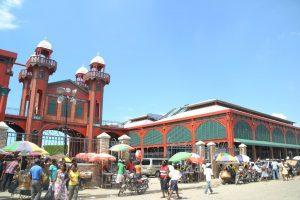
- The iron market (Marche de Fer) is a major bazaar built by the French. Originally destined for Egypt, it ended up in Port au Prince instead. Photo from TripAdvisor
-
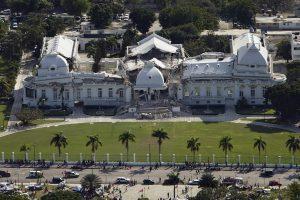
- The Haitian national palace shows heavy damage after an earthquake measuring 7 plus on the Richter scale rocked Port au Prince Haiti just before 5 pm yesterday, January 12, 2009.

